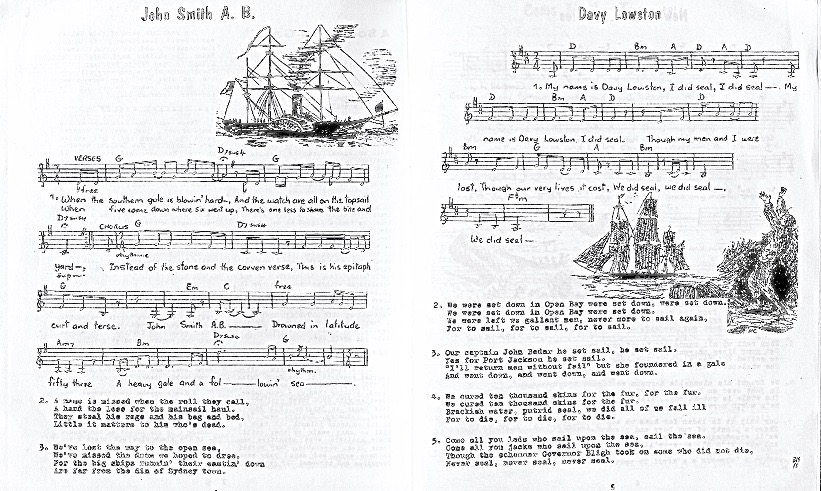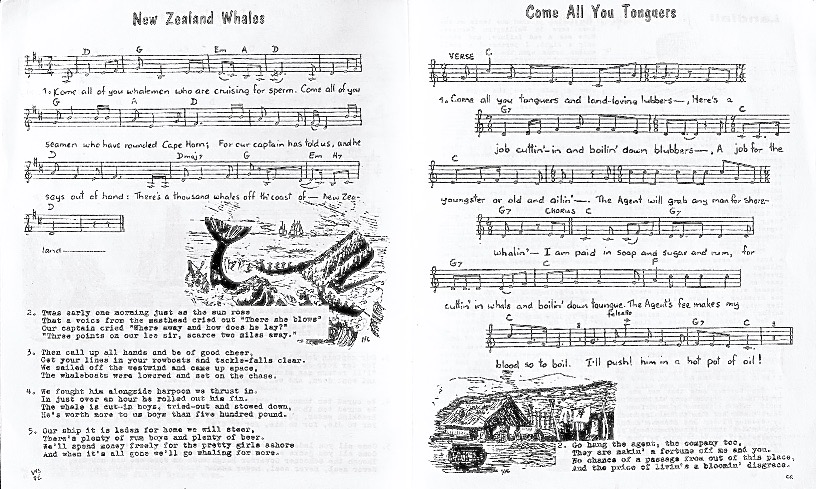Kiwi songs - Maori songs - Home
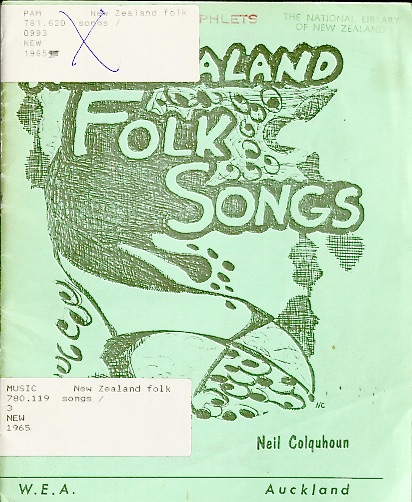
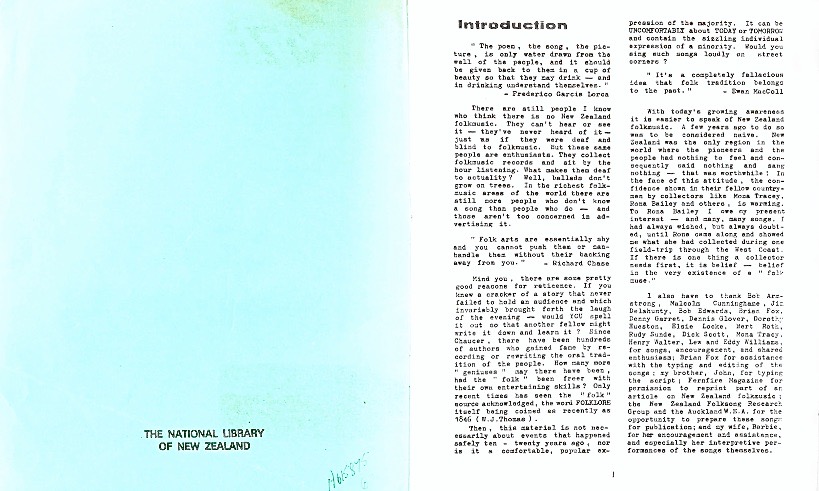
Introduction "The poem, the song, the
picture, is only water drawn from the well of the people,
and it should be given back to them in a cup of beauty so
that they may drink, and in drinking understand themselves."
Frederico Garcia Lorca.
There are still people I know who think there is no New Zealand folk music. They can't hear or see it — they've never heard of it — just as if they were deaf and blind to folkmusic. But these same people are enthusiasts. They collect folkmusic records and sit by the hour listening. What makes them deaf to actuality? Well, ballads don't grow on trees. In the richest folk-music areas of the world there are still more people who don't know a song than people who do - and those aren't too concerned in advertising it. "Folk arts are essentially shy and you cannot push them or manhandle them without their backing away from you."
Richard Chase
Mind you, there are some pretty good reasons for reticence. If you knew a cracker of a story that never failed to hold an audience and which invariably brought forth the laugh of the evening would YOU spell it out so that another fellow night write it down and learn it ? Since Chaucer, there have been hundreds of authors who gained fame by recording or rewriting the oral tradition of the people. How many more "geniuses" may there have been, had the "folk" been freer with their own entertaining skills? Only recent times have seen the "folk" source acknowledged, the word FOLKLORE itself being coined as recently as 1846 (W.J.Thomas). Consequently, this material is not necessarily about events that happened safely ten, twenty, a hundred years ago, nor is it comfortable, popular expression of the majority. It can be UNCOMFORTABLY about TODAY or TOMORROW, and it can contain the sizzling individual expression of a minority. Would you sing such songs loudly on street corners? "It's a completely fallacious idea that folk tradition belongs to the past." Ewan
MacColl
With today's growing awareness it
is easier to speak of New Zealand folkmusic. A few years ago
to do so was to be considered naive. New Zealand was the only
region in the world where the pioneers and people had nothing
to feel and consequently said nothing and nothing that was
worthwhile.
In the face of this attitude, the confidence shown in their fellow country-men by collectors like Mona Tracey, Rona Bailey and others, is warming. To Rosa Bailey I owe my present interest and many, many songs. I had always wished, but always doubted, until Rona came along and showed she what she had collected during one field-trip through the West Coast. If there is one thing a collector needs first, it is belief in the very existence of a "folk muse." |
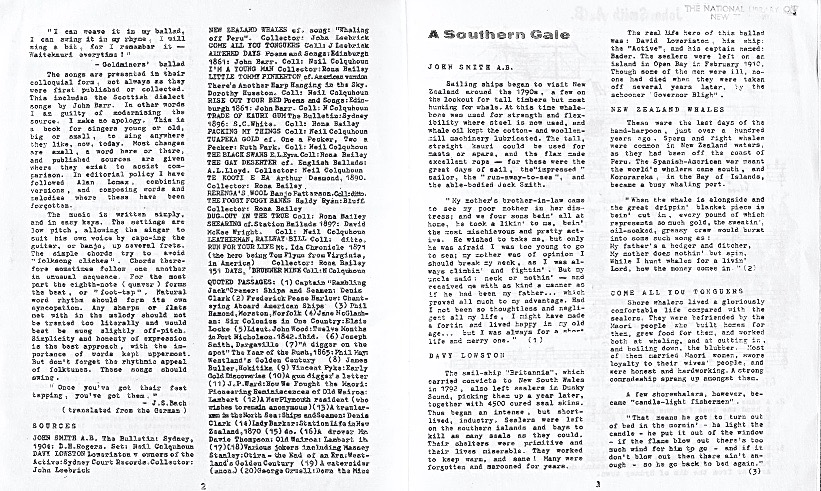
|
"I can weave it in my
ballad, I can swing it in my rhyme,
I will sing a bit, for I remember it, Waitekauri everytime!" Goldminers' ballad
The songs are presented in their colloquial form, not always as they were first published or collected, in proper English. This includes the Scottish dialect songs by John Barr. In other words, as for being guilty of modernising the source, I make no apology. This is a book for singers young or old, big or small, to sing anywhere they like, now, today. Most changes are small, a word here or there, and published sources are given where they exist to assist comparison. In editorial policy I have followed Alan Lomax: 1. I have combined versions, and composed words and melodies where these have been forgotten. 2. The music is written simply, and in easy keys.
3. The settings are low pitch, allowing the singer to suit
his own voice by capo-ing the guitar, or banjo, up several
frets.
4. The simple chords try to avoid "folksong cliches". Chords therefore sometimes follow one another in unusual sequence. 5. For the most part the eighth-note (quaver) forms the beat, or "foot-tap." 6. Natural word rhythm should form its syncopation. 7. Any sharps or flats met with in the melody should not be treated too literally and would best be sung slightly off-pitch. 8. Simplicity and honesty of expression is the best
approach, with the importance of words kept uppermost.
9. Don't forget the rhythmic appeal of folktunes. These songs should swing. "Once you've got their feet tapping, you've got them." J.S.Bach
|
